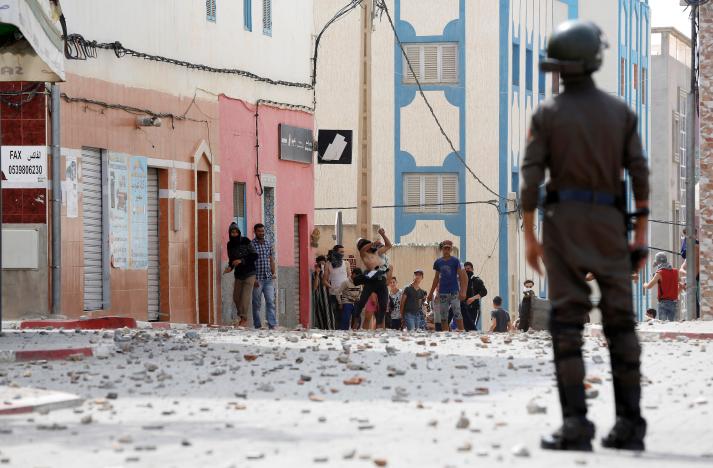Rabat – Morocco’s Interior Minister Abdelouafi Laftit said that his country has decisively taken a proactive and strategic approach to human rights.
Laftit said that this approach comes under the wise reign of King Mohammed VI and is further focused and endorsed by the 2011 Moroccan constitutional referendum.
Speaking at parliament, the interior minister said human rights gains that have contributed to Morocco becoming an active partner for democracy on an international level cannot be upheld in an arbitrary or coincidental fashion.
These advances need a close follow-up, so that international standards are upheld, in the field of human rights in dealing with governments, he added.
On the other hand, the minister stated that the right to demonstrate peacefully in Morocco has witnessed both quantitative and qualitative developments.
Public authorities have been dealing with public protests and demonstrations on a daily basis with professionalism and responsibility. They have stepped up security measures to ensure a proper environment for the public exercising freedom of protest, he continued.
More so, government authorities and security bodies have so far managed to uphold the rule of law, added Laftif.
Regarding public forces interfering to stop a protest on July 8 that was scheduled in front of the parliament, Laftit said that the organizers were not abiding by constitutional regulations.
“The intervention of public forces under the supervision of the local authorities was civilized and in full respect of the substantive and formal legal requirements, contrary to the image promoted by some,” he commented.
Speaking on the coverage of the security intervention, the interior minister said that it “does not reflect the reality of the situation at hand and does members of the public forces a great deal of injustice.”
“The preservation of public order and the exercise of public freedoms are essential pillars of democracy,” he stressed.
“Safeguarding such principles avoids any future need of efforts by society to strike a balance between rights and duties.”
